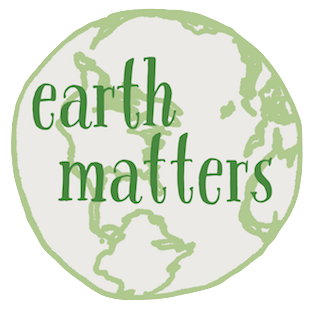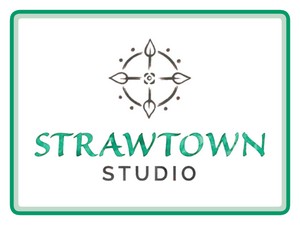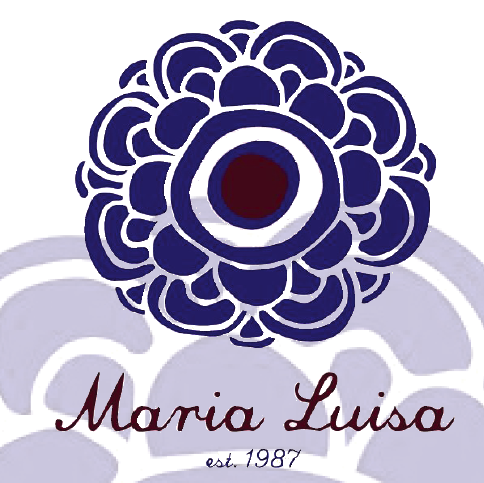 Earth Matters focuses on conservation, sustainability, recycling and healthy living. This weekly series is brought to you by Maria Luisa Boutique and Strawtown Studio and Summer Play Camp at Blue Rock School and Dying To Bloom, a natural burial boutique for humans and pets. Applications are now available for the ML by Maria Luisa Scholarships for the 2018-2019 year. The application deadline is March 16, 2019.
Earth Matters focuses on conservation, sustainability, recycling and healthy living. This weekly series is brought to you by Maria Luisa Boutique and Strawtown Studio and Summer Play Camp at Blue Rock School and Dying To Bloom, a natural burial boutique for humans and pets. Applications are now available for the ML by Maria Luisa Scholarships for the 2018-2019 year. The application deadline is March 16, 2019. If Earth Matters to you, sign up for our mailing list and get the next installment delivered right to your inbox.
by Susan Hellauer
It was past time for that big bathroom cleanup. And the payoff? A big bag of half-used tubes, jars, and bottles—all hair- and skincare items that my family had accumulated, abandoned, and replaced with newer and more enticing models.
My sustainable side said to dispose of the contents and recycle whatever containers I could. But these lotions and potions contain unpronounceable chemicals, and probably shouldn’t go down the drain. But wait! We’ve been massaging those chemicals into our skin and then they go down the drain. Ugh. Time for some new thinking in the hope-in-a-bottle department.
For perspective on all the things we spray, pour, lather, slather, brush, and rub all over ourselves, I visited the Nyack salon of Candice Robins, who is a holistic hair dresser to the stars, certified nutrition therapist, herbalist, artist, and clean-water advocate. Robins got me thinking about the origin and destiny of all those plastic-encased chemical concoctions on the bathroom shelf.
People use nicotine patches to quit smoking. And I know someone who wears a nitroglycerin patch for a heart condition. If serious medicine can be taken through the skin, what about all the stuff we mindlessly anoint ourselves with every day?
The personal care industry and the cosmetic industry have spent enormous fortunes—just like Big Agriculture, by the way—to convince us to ignore ingredients. You have to understand how quickly things move through the skin. For instance, you go into the shower and put something on your head—shampoo, styling products, or even hair color. It goes all over your body, which is warm, with wide-open pores. And your scalp is filled with blood vessels. It all gets into your system, literally in seconds.
Different compounds penetrate the skin to varying degrees. Collagen has a hard time getting past the skin, but other substances, like oils, penetrate easily. Everything has its own rate of absorption and bioacccumulation.
As a nutritionist, it seems to me that everyone has hormone or thyroid or endocrine problems. It’s about time we started thinking about what we are using on our skin. Think about the plastic containers, too, which are all xenoestrogens, toxins, and worse, with the ingredients inside dissolving the plastic. It’s all so unnecessary. There are companies out there producing really good, safer products.

Raw Wild Honey Shampoos by Candice Robins. Customers get a $1 deposit back for returning the sturdy and attractive glass bottles and jars. “They love to bring the bottles back,” said Robins. Photo courtesy Candice Robins
That long list of ingredients on a typical bottle of shampoo includes everything except soap. Should it really take an entire chemistry set just to wash my hair? Wouldn’t it be cheaper to make shampoo with soap?
After World War II, American life began to become very “chemicalized.” The cosmetic industry began to talk us into using detergents rather than soap, because detergents are cheap—generally made from petroleum. They’ve spent the last 70 years convincing the public that there’s no difference between soap and detergent. But it’s a completely different chemical process. The hair care industry even had to develop “creme rinse” in the 1950s because we were using detergents that strip the hair. And how can these harsh chemicals not disturb the natural mantle, or microbiome, of both skin and hair?
Soap is a simple thing. You take plant oil or animal fat, and mix it with lye from wood ash, and a chemical reaction of acid and alkaline turns it into soap. Cultures all over the world figured out how to do this thousands of years ago. The quality of the soap depends on the both the quality of the ingredients and the quality of the soap maker, because it’s an art form.
What should a careful consumer look for on skincare product labels in order to be safe? Should we stick to “organic” products?
There’s no standard for “organic” in cosmetics, hair or skincare products. You have to look at the ingredients in the product. They need to be simple and understandable. If the ingredient list is long and complicated, that’s a bad sign. Even on health food store or high end skin care products, packaging can be deceptive. Look carefully at the ingredients.
If you have simple, powerful, and well-raised ingredients, it doesn’t have to be that complicated. Simple, well-raised food tastes good and is good for you. It’s the same with the ingredients in your skin-care products and cosmetics. The cosmetic and skin care industries have managed to convince us that using chemicals on our skin is somehow better than things that humans have been using for thousands of years. All cultures adorn themselves and use oils and fragrances. It’s part of being human. But it’s time to question a lot of the “beauty propaganda” we’ve been fed.

There are artisans and manufacturers who produce skin- and haircare products with simple ingredients, like this Raw Honey soap-based shampoo. Photo courtesy Candice Robins
So I pick up a face cream in the drug store and see that it has about 40 ingredients. I can’t pronounce most of them.
So don’t buy it. Manufacturers like chemicals and synthetic ingredients because they are cheaper and because they don’t need the artisan aspect of small-batch companies. And there’s a marketing appeal, too. A lot of money goes into getting us addicted to synthetic scents, cosmetics—and food, too.
We all like things that smell good, and we all like variety. But what we need are simple and effective rituals. Simple and natural products—like the ones I make—completely biodegrade and leave no unnatural residue in the environment. But we just don’t know whether or how much those chemical-based ingredients biodegrade, and we can’t filter them out at the water treatment plant.
Where can we find out more about what’s in the products that touch or stay on the skin?
You should absolutely look up the ingredients in your self-care products. What are they? A lot of them are legal here, but not legal in Europe. You can use the Environmental Working Group website (EWG.org) to look up and evaluate ingredients.
Candice Robins has a master’s degree in fine arts, is a certified nutrition therapist, a trained herbalist, and has been a hairdresser to modeling agencies and an elite New York City clientele for 40 years. Robins has been crafting her own signature line of simple and natural skin- and hair-care products since 1973. Her salon is at 192 Main Street in Nyack.
Learn more:
- Visit Candice Robins’ website, instagram feed or facebook page for more about her services and handmade products.
- Nyack Sketch Log: Candice Robins Streamstudio (5/29/12, Nyack News and Views)
- The Environmental Working Group “Skin Deep” database makes it easy to find and understand ingredients in cosmetics and other self-care products.
Read Earth Matters every Wednesday on Nyack News And Views, or sign up for the Earth Matters mailing list.
Earth Matters, a weekly feature that focuses on conservation, sustainability, recycling and healthy living, is sponsored by Maria Luisa Boutique, Dying to Bloom, Strawtown Studio, and Summer Play Camp at Blue Rock School.













